 W
WAlexander Adam was a Scottish teacher and writer on Roman antiquities.
 W
WJames Anderson FRSE FSA(Scot) was a Scottish agriculturist, journalist and economist. A member of the Edinburgh Philosophical Society, Anderson was a prominent figure in the Scottish Enlightenment. He invented the Scotch plough.
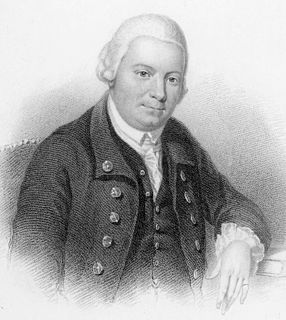 W
WJohn Anderson was a Scottish natural philosopher and liberal educator at the forefront of the application of science to technology in the industrial revolution, and of the education and advancement of working men and women. He was a joint founder of the Royal Society of Edinburgh, and was the posthumous founder of Anderson's College, which ultimately evolved into the University of Strathclyde.
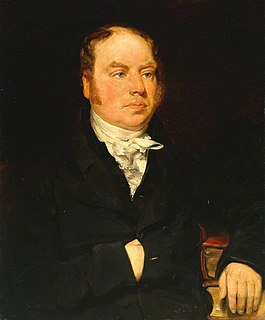 W
WJames Andrew, LL.D., was the principal of the East India Company's Military Seminary at Addiscombe, Surrey from 1809 to 1822.
 W
WJohn Arbuthnot FRS, often known simply as Dr Arbuthnot, was a Scottish physician, satirist and polymath in London. He is best remembered for his contributions to mathematics, his membership in the Scriblerus Club, and for inventing the figure of John Bull.
 W
WDr. John Armstrong (1709–1779) was a physician, poet, and satirist. He was born at Castleton Manse, the son of Robert Armstrong, minister of Castleton, Roxburghshire, Scotland John studied medicine and gained his MD at the renowned University of Edinburgh before establishing a successful medical practice in London.
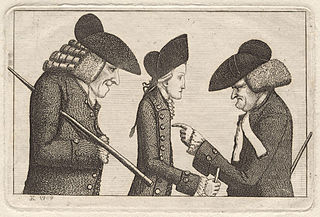 W
WHugo Arnot of Balcormo was a Scottish advocate, writer, and campaigner.
 W
WJoanna Baillie was a Scottish poet and dramatist, known for such works as Plays on the Passions and Fugitive Verses (1840). She shows her interest in moral philosophy and the Gothic. She was critically acclaimed in her lifetime, and while living in Hampstead, associated with literary contemporaries such as Anna Barbauld, Lucy Aikin, and Walter Scott. She died at the age of 88.
 W
WJohn Boag (1775–1863) was an evangelist, pastor, and lexicographer, who compiled the 'Imperial Lexicon'.
 W
WJames Boswell, 9th Laird of Auchinleck, was a Scottish biographer, diarist, and lawyer, born in Edinburgh. He is best known for his biography of his friend and older contemporary, the English writer Samuel Johnson, which is commonly said to be the greatest biography written in the English language. A great mass of Boswell's diaries, letters and private papers were recovered from the 1920s to the 1950s, and their ongoing publication by Yale University has transformed his reputation.
 W
WJohn Brown was a Scottish physician and the creator of the Brunonian system of medicine.
 W
WJames Bruce of Kinnaird was a Scottish traveller and travel writer who spent more than a dozen years in North Africa and Ethiopia, where he was the first European to trace the origins of the Blue Nile.
 W
WPatrick Brydone, FRSE, FRS, FSA (Scot), FSA was a Scottish traveller and author who served as Comptroller of the Stamp Office.
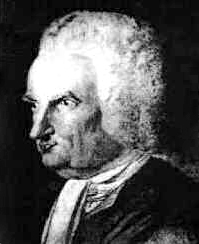 W
WJames Burnett, Lord Monboddo, was a Scottish judge, scholar of linguistic evolution, philosopher and deist. He is most famous today as a founder of modern comparative historical linguistics. In 1767 he became a judge in the Court of Session.
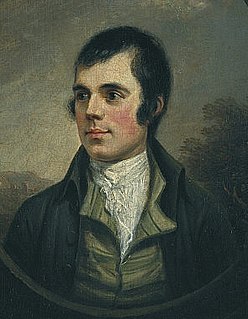 W
WRobert Burns, also known familiarly as Rabbie Burns, the National Bard, Bard of Ayrshire and the Ploughman Poet and various other names and epithets, was a Scottish poet and lyricist. He is widely regarded as the national poet of Scotland and is celebrated worldwide. He is the best known of the poets who have written in the Scots language, although much of his writing is in English and a light Scots dialect, accessible to an audience beyond Scotland. He also wrote in standard English, and in these writings his political or civil commentary is often at its bluntest.
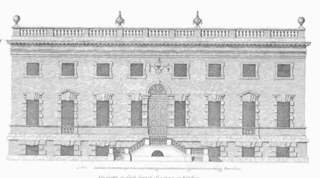 W
WColen Campbell was a pioneering Scottish architect and architectural writer, credited as a founder of the Georgian style. For most of his career, he resided in Italy and England.
 W
WRev Prof George Campbell DD FRSE was a figure of the Scottish Enlightenment, known as a philosopher, minister, and professor of divinity. Campbell was primarily interested in rhetoric, since he believed that its study would enable his students to become better preachers. He became a philosopher of rhetoric because he took it that the philosophical changes of the Age of Enlightenment would have implications for rhetoric.
 W
WJohn Campbell was a Scottish author. He contributed to George Sale's Universal History, and wrote a Political Survey of Britain (1744). He was both prolific and well paid: according to James Boswell, Samuel Johnson spoke of Campbell to Joseph Warton as 'the richest author that ever grazed the common of literature.'
 W
WThomas Christie (1761–1796) was a Scottish radical political writer during the late 18th century. He was one of the two original founders of the important liberal journal, the Analytical Review.
 W
WWilliam Cullen FRS FRSE FRCPE FPSG was a Scottish physician, chemist and agriculturalist, and one of the most important professors at the Edinburgh Medical School, during its heyday as the leading centre of medical education in the English-speaking world.
 W
WThomas Davies was a Scottish bookseller and author. He studied at the University of Edinburgh and was for some years on the stage; but having been ridiculed by Churchill in The Rosciad he gave up acting and opened a bookshop in Covent Garden. It was here that in 1763 he introduced Boswell to Dr. Johnson, who was his close friend and to whom he dedicated his edition of the works of Massinger. He wrote a successful Life of Garrick (1780), which passed through four editions, and Dramatic Miscellanies.
 W
WDavid Doig FRSE LLD (1719–1800) was a Scottish educator, philologist and writer known for historical and philosophical works. He was Rector of Stirling High School from 1760 to 1800. Doig is also believed to have been the inventor of the tartan pattern now associated with Burberry.
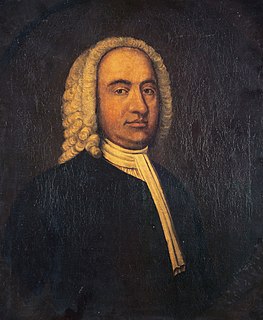 W
WEbenezer Erskine was a Scottish minister whose actions led to the establishment of the Secession Church.
 W
WRev John Erskine DD (1721–1803), the Scottish theologian, was born near Dunfermline at Carnock on 2 June 1721. His father was the great Scottish jurist John Erskine of Carnock and his grandfather was Colonel John Erskine of Cardross who had been in William of Orange's army when it invaded England in the Glorious Revolution of 1688.
 W
WRobert Fergusson was a Scottish poet. After formal education at the University of St Andrews, Fergusson led a bohemian life in Edinburgh, the city of his birth, then at the height of intellectual and cultural ferment as part of the Scottish enlightenment. Many of his extant poems were printed from 1771 onwards in Walter Ruddiman's Weekly Magazine, and a collected works was first published early in 1773. Despite a short life, his career was highly influential, especially through its impact on Robert Burns. He wrote both Scottish English and the Scots language, and it is his vivid and masterly writing in the latter leid for which he is principally acclaimed.
 W
WJames Fisher (1697–1775) was one of the founders of the Scottish Secession church. He was born at Barr, on 23 January 1697, the second son of Thomas Fisher, minister of Rhynd. He was educated at University of Glasgow. He was licensed by the Presbytery of Perth on 31 October 1722 and subsequently called and ordained on 23 December 1725. He dissented and joined with his father-in-law Ebenezer Erskine in his appeal and complaint to the Assembly of 1733. He was one of the four original members of the Associate Presbytery founded at Gairney Bridge on 6 December 1733. He was deposed by the General Assembly on 15 May 1740, but continued to preach in the parish church till 13 August 1741, when he was forcibly ejected on a sheriff's warrant. He then preached in a tent on Kinclaven brae during the time he remained in the district. On 8 October 1741 he became minister of Shuttle Street Associate Congregation, Glasgow. He was deposed by the Associate (Antiburgher) Synod on 4 August 1748 over the question of the Burgess Oath. He was appointed Professor of Divinity by the Associate (Burgher) Synod in 1749. He died on 28th September 1775.
 W
WAlexander Forbes, 4th Lord Forbes of Pitsligo (1678–1762) was a Scottish Jacobite nobleman and refugee, also known as a writer.
 W
WJames Forbes (c.1629–1712) was a Scottish nonconformist divine.
 W
WRobert Forsyth (1766–1845), was a Scottish writer, best known for his five-volume work, The Beauties of Scotland.
 W
WJohn Gregory, a.k.a. John Gregorie, was an eighteenth-century Scottish Enlightenment physician, medical writer and moralist.
 W
WDr. Alexander Hamilton was a Scottish-born doctor and writer who lived and worked in Annapolis in 18th-century colonial Maryland. Historian Leo Lemay says his 1744 travel diary Gentleman's Progress: The Itinerarium of Dr. Alexander Hamilton is "the best single portrait of men and manners, of rural and urban life, of the wide range of society and scenery in colonial America." His diary covered Maryland to Maine; and biographer Elaine Breslaw says he encountered:the relatively primitive social milieu of the New World. He faced unfamiliar and challenging social institutions: the labor system that relied on black slaves, extraordinarily fluid social statuses, distasteful business methods, unpleasant conversational quirks, as well as variant habits of dress, food, and drink."
 W
WElizabeth Hamilton was a Scottish essayist, poet, satirist and novelist.
 W
WVery Rev Thomas Hardy FRSE DD was a Scottish Minister, Moderator of the General Assembly of the Church of Scotland and Professor of Eccesiastical History at Edinburgh University.
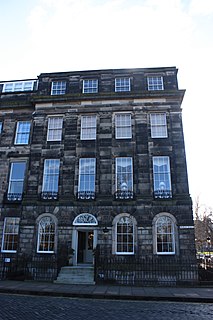 W
WDavid Hume, Baron Hume of Ninewells FRSE (1757–1838) was a Scottish advocate, judge and legal scholar, whose work on Scots criminal law and Scots private law has had a deep and continuing influence. He is referred to as Baron Hume to distinguish him from his uncle, David Hume the philosopher.
 W
WDr Robert Kerr FRSE FAS FRCSE was a Scottish surgeon, writer on scientific and other subjects, and translator.
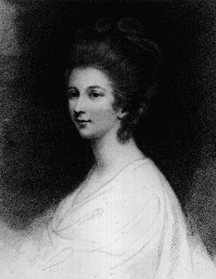 W
WCharlotte Lennox, née Ramsay, was a Scottish novelist, playwright and poet, mostly remembered today as the author of The Female Quixote, and for her association with Samuel Johnson, Joshua Reynolds and Samuel Richardson. However, she had a long career in her own right.
 W
WSir George Lockhart of Lee, of Carnwath, South Lanarkshire, also known as Lockhart of Carnwath, was a Scottish writer and Jacobite politician who sat in the Parliament of Scotland from 1702 to 1707 and as a Tory in the House of Commons from 1708 to 1715. He was a member of the Commission on the Union before 1707 but acted as an informant to his Jacobite colleagues and later wrote an anonymous memoir of its dealings. He supported the Pretender in the Jacobite rebellion.
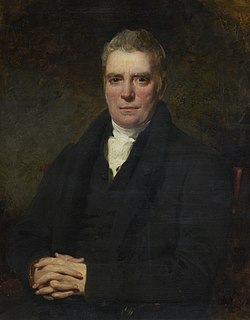 W
WThomas M'Crie was a Scottish historian, writer, and preacher born in the town of Duns in November 1772.
 W
WLady Anna Mackenzie (1621–1707) was a Scottish courtier and memoirist, wife of the first Earl of Balcarres and the mother of the second and third. After her first husband died, she married Archibald Campbell, 9th Earl of Argyll. She was a governess to William III when he was a child. Mackenzie suffered because she was a Jacobite and her second husband was executed for leading a rising against James VII and II which was intended to support the Monmouth Rebellion. She worked to keep together the estates of Balcarres despite the tumultuous times in which she lived and her family's support of the Jacobite cause. Her memoirs were published more than a century after her death.
 W
WColin Mackenzie was a nineteenth century literary contributor/hack writer, editor, translator and compiler. Between 1849 and 1851 he was the secretary of Charles Cochrane's 'National Philanthropic Association.' Mackenzie spent his adult life living and working in London, England. His interests were wide ranging and his publications reflected this. They were primarily works of non-fiction, including educational and informative works on chemistry, cookery, medicine, popular science, geography, history, economics and religion, but he also wrote about the 'gentlemen's clubs' of London, a 'parliamentary pocketbook' with a strong reformist leaning in 1832 and, towards the end of his career, a report on the chronic poverty and famine that scarred Britain and engulfed Ireland in the late 1840s.
 W
WHenry Mackenzie FRSE was a Scottish lawyer, novelist and writer. He was sometimes described as the Addison of the North. While Mackenzie is now remembered mostly as an author, his main income came from legal roles, which led in 1804–1831 to a lucrative post as Comptroller of Taxes for Scotland, whose possession allowing him to indulge his interest in writing.
 W
WJames Macpherson was a Scottish writer, poet, literary collector and politician, known as the "translator" of the Ossian cycle of epic poems. He was the first Scottish poet to gain an international reputation.
 W
WDavid Mallet (c.1705–1765) was a Scottish poet and dramatist.
 W
WDr. John Moore FRSE was a Scottish physician and travel author. He also edited the works of Tobias Smollett.
 W
WPatrick Murray, 5th Lord Elibank (1703–1778) was a Scottish soldier, lawyer, author and economist.
 W
WRobert Mylne was a Scottish writer of pasquils, and antiquary. He is generally described as a writer of Edinburgh, but also as an engraver.
 W
WAllan Ramsay was a Scottish poet, playwright, publisher, librarian, and impresario of early Enlightenment Edinburgh.
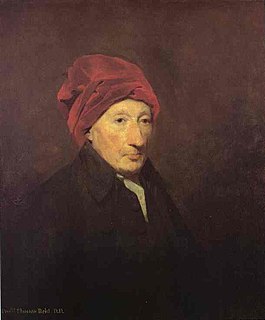 W
WThomas Reid was a religiously trained Scottish philosopher. He was the founder of the Scottish School of Common Sense and played an integral role in the Scottish Enlightenment. In 1783 he was a joint founder of the Royal Society of Edinburgh. A contemporary of David Hume, Reid was also "Hume's earliest and fiercest critic".
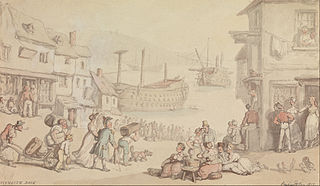 W
WJanet Schaw, traveller and diarist, was born between 1730 and 1740 in Lauriston Edinburgh. The third cousin, once removed of Sir Walter Scott, she was born into an old Scottish family. Little is known about her early life, but during her travels to the Antigua, St. Christopher, North Carolina, and Portugal in 1774–1776, she kept a journal, "blessedly unaware that as she jotted down her opinions and descriptions that she was a writing for posterity a document of rare interest and importance, now which as far as we know, and especially as it bears on the Scottish phase of American colonial history, is unique". After her return to Britain she lived in Edinburgh and Plymouth, where she met King George III and Queen Charlotte. Janet died in 1800.
 W
WTobias George Smollett was a Scottish poet and author. He was best known for his picaresque novels, such as The Adventures of Roderick Random (1748), The Adventures of Peregrine Pickle (1751) and The Expedition of Humphry Clinker (1771), which influenced later novelists, including Charles Dickens. His novels were amended liberally by printers; a definitive edition of each of his works was edited by Dr O. M. Brack Jr to correct such variations.
 W
WJohn Gabriel Stedman was a Dutch-born Scottish colonial soldier, who wrote The Narrative of a Five Years Expedition against the Revolted Negroes of Surinam (1796). This narrative covers his years in Surinam as a soldier in the Dutch military deployed to assist local troops fighting against groups of escaped slaves. He first recorded his experiences in a personal diary that he later rewrote and expanded into the Narrative. The Narrative was a bestseller of the time and, with its firsthand depictions of slavery and other aspects of colonization, became an important tool in the early abolitionist cause. When compared with Stedman's personal diary, his published Narrative is a sanitized and romanticized version of Stedman's time in Surinam.
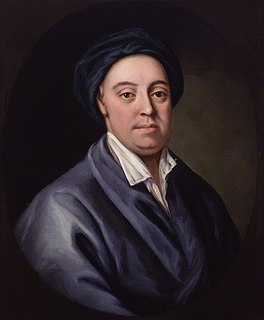 W
WJames Thomson was a Scottish poet and playwright, known for his poems The Seasons and The Castle of Indolence, and for the lyrics of "Rule, Britannia!".
 W
WThomas Thomson FRSE FSA Scot was a Scottish advocate, antiquarian and archivist who served as Principal Clerk of Session (1828–1852) and as secretary of the literary section of the Royal Society of Edinburgh (1812–20).
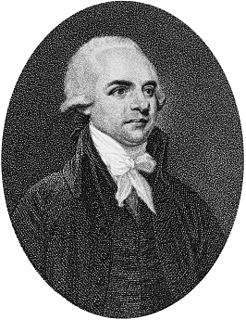 W
WThomas Trotter (1760–1832) was a Scottish naval physician and author who was a leading medical reformer in the Royal Navy and an ardent critic of the slave trade. Trotter was born in Melrose, Roxburghshire, and studied medicine under Alexander Monro (secundus) in Edinburgh. His major work, the Medicina Nautica, was published in 1802 and provides a detailed examination of the state of naval medicine during the French Revolutionary Wars.
 W
WWilliam Tytler WS FRSE (1711–1792) was a Scottish lawyer, known as a historical writer. He wrote An Inquiry into the Evidence against Mary Queen of Scots, against the views of William Robertson. He discovered the manuscript the "Kingis Quhair", a poem of James I of Scotland. In 1783 he was one of the joint founders of the Royal Society of Edinburgh.
 W
WCatherine Mason was born in Scotland and is most recognised for her literary works of novels, poetry and children's fiction. Some of her most notable works are The Mysterious Marriage, The Rose of Claremont and The Eve of St Agnes. Her story begins in 1810 when Ward settled in London, presumably with her first husband. She is also believed to have had a brief acting career in Edinburgh during her earlier years.
 W
WJohn Witherspoon was a Scottish American Presbyterian minister and a Founding Father of the United States. Witherspoon embraced the concepts of Scottish common sense realism, and while president of the College of New Jersey, became an influential figure in the development of the United States' national character. Politically active, Witherspoon was a delegate from New Jersey to the Second Continental Congress and a signatory to the July 4, 1776, Declaration of Independence. He was the only active clergyman and the only college president to sign the Declaration. Later, he signed the Articles of Confederation and supported ratification of the Constitution. In 1789 he was convening moderator of the First General Assembly of the Presbyterian Church in the United States of America.